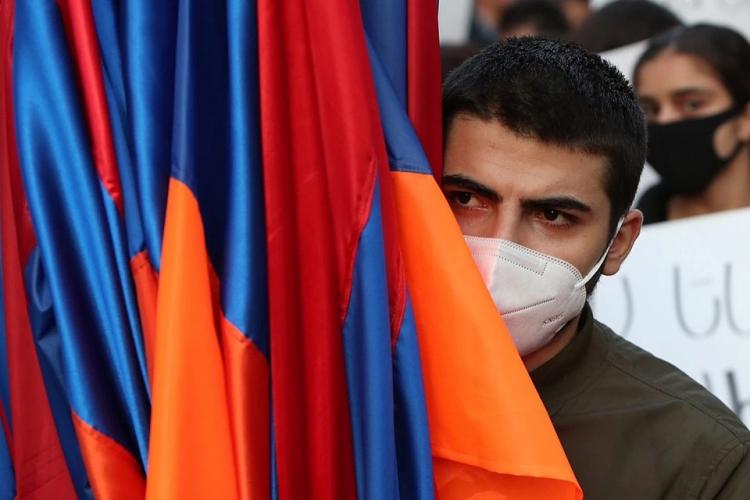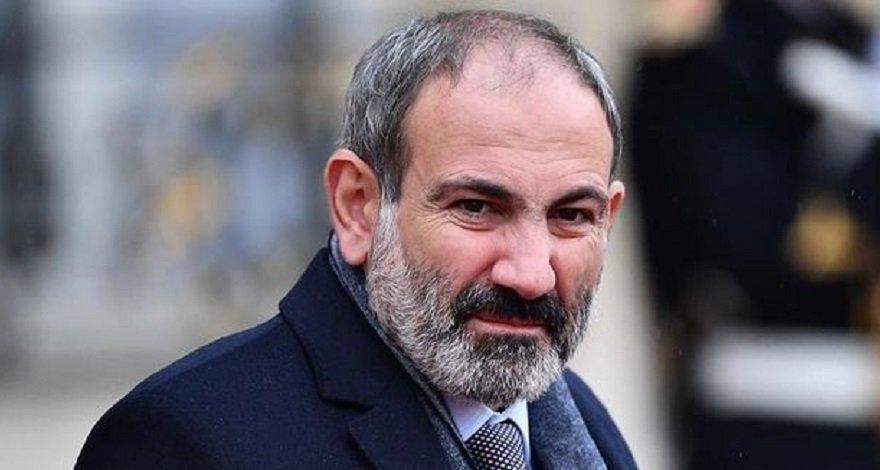Multiverse insanity: Bipolar and tripolar Armenain political system Isn't it time to call doctor?
Armenia remains staunchly opposed to political change. The mania of national greatness, which has been inflated to exorbitant heights for years, has led to a mass mental disorder among the country's political elites.
Despite the year and a half that has passed since the end of the [2020 Karabakh] war and [Armenia's] surrender, the syndrome of mass rejection of reality has only intensified, and now various social layers and political circles in Armenia live like movie heroes from Marvel's "Infinity Saga": in the separate multiverse, not hearing or seeing the perturbations happening nearby. It is quite fair to note in this regard that the current political system of the country is in a state of bipolar, or even tripolar disorder, where the Armenian opposition, power structures and [Armenian Prime Minister Nikol] Pashinyan himself exist separately. In general, isn't it time to call a doctor?
"Valiant" revanchists
Perhaps, in the most "distant universe", a radical opposition has settled, professing the ideas of revanchism. It is now acting as a united front under the label "Resistance Movement" and there are many painfully familiar faces there - [former Presidents] Robert Kocharyan, Serzh Sargsyan, etc. In general, all those who are least inclined to any changes in Armenia. The criminal psychology of the two ex-presidents is obvious, but the leader of the "velvet revolution" and incumbent Prime Minister Pashinyan seriously prevents them from immersing their minds and bodies in the post-Soviet reality. In general, there are most politicians and public activists in this camp are detached from reality, whose brains have been thoroughly washed by the concept of Armenian Aryanism for 30 years. They practically do not realise (or do not want to realise) that Armenia's only way today is to sign a peace treaty with Azerbaijan and normalise relations with Türkiye, unblock communications and establish a civilised life outside isolation, banal increase in welfare, salaries and pensions, and, finally, the absence of military threats to civilians.

But if official Yerevan, in its contacts with Baku at the negotiating platforms in Brussels and Moscow, somehow tries to at least approach such a level, then the Armenian revanchists do not care how the people live - they have their own goals. The Armenian opposition calls Pashinyan's actions with one succinct expression: "The betrayal of a capitulator." Completely forgetting that their own aforementioned leaders had a hand in this surrender. However, the revanchists hardly have any idea where the idea of "Great Armenia", which they are reanimating again, and hence the refusal to sign a peace treaty with Azerbaijan, can lead. And this is undoubtedly a permanent war, chaos and devastation, into which the country will plunge. What kind of tanks fashioned out of the mud and a bunch of ridiculous promises are the "Armenian warriors" going to fight on, from which non-existent air defences are they going to shoot at the enemy? And most importantly, what are they going to feed the Armenian people with, which, judging by the frightening demographic indicators, is seriously declining in its number due to falling living standards and total migration abroad? But no – now the most important thing, according to the deputy speaker of the Armenian parliament, Resistance Movement coordinator, Ishkhan Saghatelyan, is "to increase the number of tents of revolutionaries in Armenia's squares".
It is clear that while the oppositionists are being fed by certain forces in Moscow, and, of course, foreign diasporas, this situation will not last forever. However, the Armenian opposition is more concerned about other "egregious" facts - for example, that in a certain 4th basic school in the city of Sevan (Ordakli), students presented Azerbaijan "in a peaceful spirit", with its music, pastries, tea, sights, cotton and tobacco. Although, according to the oppositionists, it is necessary to intimidate everyone with the image of a "bloody Turkic adversary". However, the fact that Armenian children should study the customs and traditions of a neighbour, who tomorrow, quite possibly, good-naturedly will treat the same tea, and pastries - this, alas, will not reach the revanchists in any way. The opponents of the peace agreement do not want to hear about anything other than revenge.
The "sleeping" government
The power structures of Armenia, including the parliament, are another link in the political life of Armenia with a "special" state of consciousness. Here, too, there is a separation from reality, but of a different order, apparently due to the binding official position, and also because the prime minister's office and the executive authorities are seriously divided and function as if by themselves. Either the problem is in poor Internet and telephone communication, or Pashinyan deliberately restricts the same Foreign Ministry from its decisions in order to disorient the opposition, but there is clearly a discount between the departments. It has already become customary that the Armenian Foreign Ministry is ready to sullenly deny the fact of a new meeting of the Armenian and Azerbaijani leaders in Brussels or somewhere else, although Pashinyan's office declares this two weeks in advance. And Foreign Minister Ararat Mirzoyan, apparently, in the simplicity of his soul, has not fully figured out under whose jurisdiction the unblocked transport corridors will be located. His mind simply refuses to understand that if Armenia continues to demand rights, it seriously risks being left without any corridors at all. The Armenian Foreign Ministry's crown jewel [Mirzoyan] makes periodic aggressive attacks on Azerbaijan, the content of which is sometimes diametrically opposed to what Prime Minister Pashinyan will say on some political platforms around the same time.

"Velvet" premier
Well, Nikol Pashinyan himself, of course, is in his personal "multiverse", where everything is changing so rapidly that it is even considered bad form to decipher his thoughts and actions in the prime minister's office. Pashinyan's political passes on the Leninist system of "one step forward – two steps back" are reminiscent of his legendary dance on Jidir Plain [Jidir Duzu, located near liberated Shusha], after which Armenia's reality gained a critical plane and a pogrom perspective – seriously, in general, jumped. However, Pashinyan's current "dances" are undoubtedly linked to his difficult position in Armenia's political coordinates, where the opposition truly intends to lynch the prime minister, not in words, and is also willing to substitute some of their own. Of course, Pashinyan's position is difficult, but we must acknowledge that he created his "multiverse" of his own free will, and he will have to get out of it entirely by himself, much like Marvel's Doctor Strange. This means that it is now up to Pashinyan to create a new reality for Armenia, one in which the country can truly begin to develop and prosper. We must not get scared and not run away, but actively seek ways to mutual understanding, signing a peace treaty with Azerbaijan and Türkiye. There is simply no other way in this geopolitical situation.








